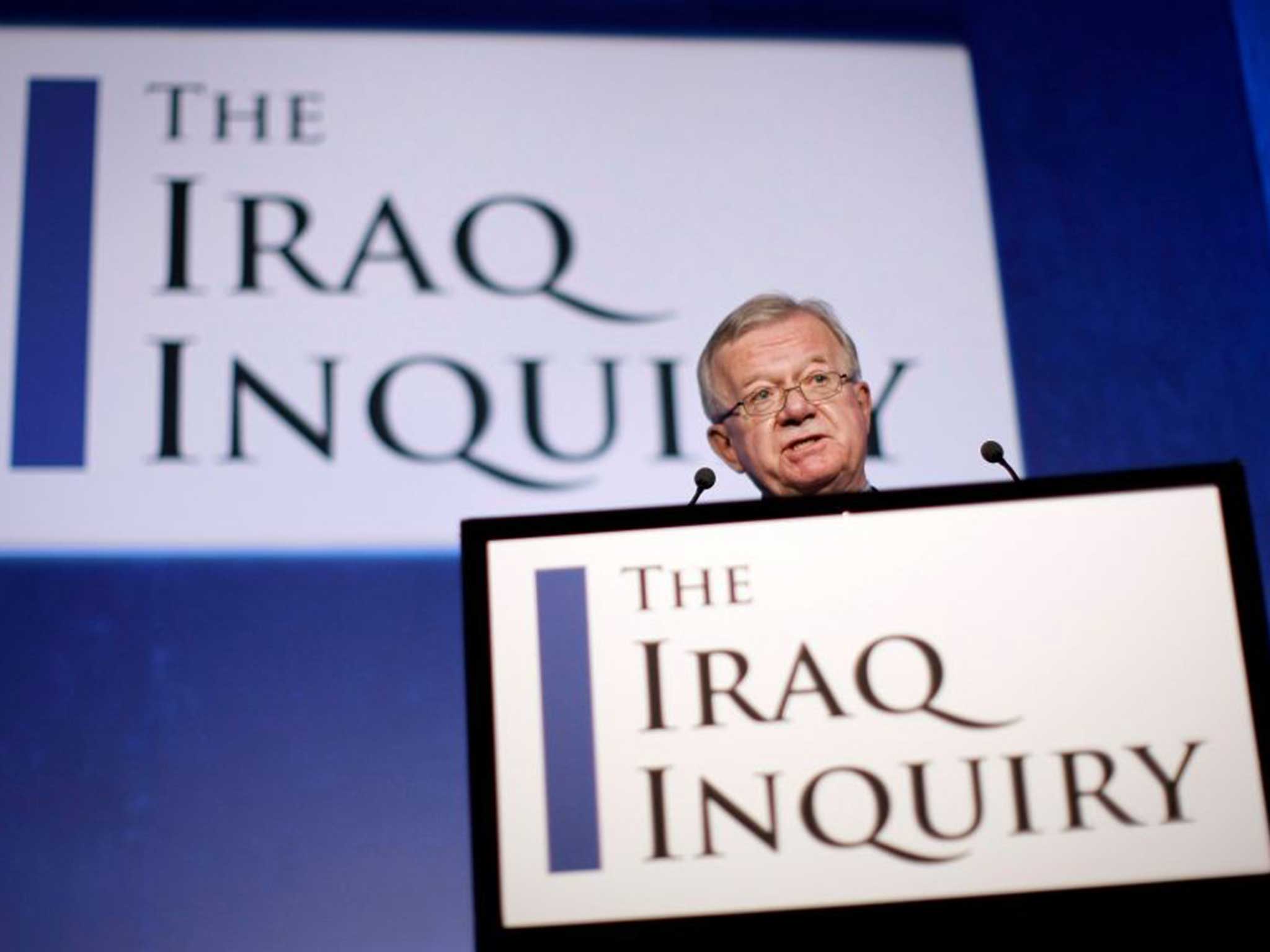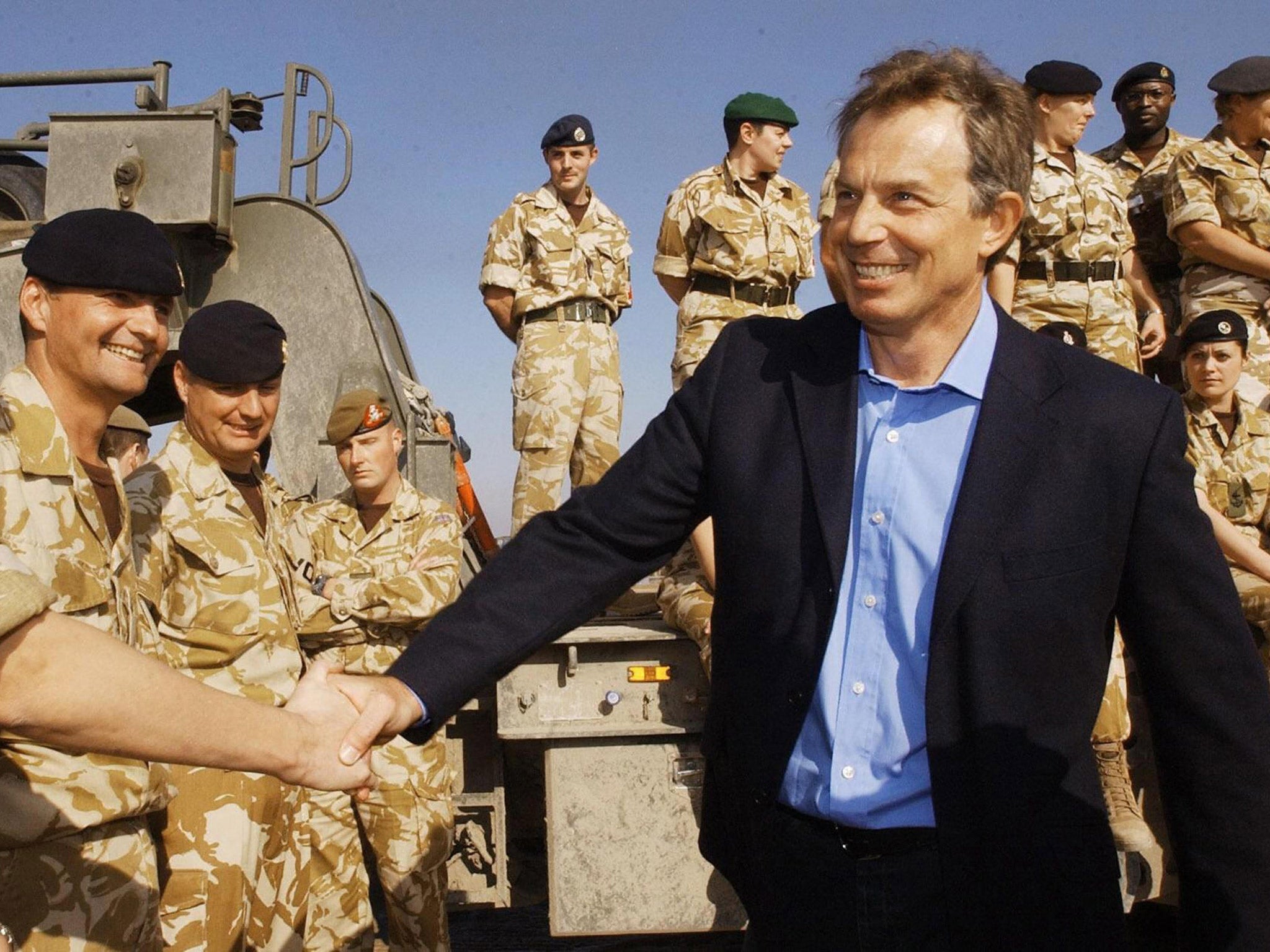Chilcot Inquiry into Iraq war will 'not report before election'
Former minister brands latest postponement of six-year inquiry 'a betrayal'

Your support helps us to tell the story
From reproductive rights to climate change to Big Tech, The Independent is on the ground when the story is developing. Whether it's investigating the financials of Elon Musk's pro-Trump PAC or producing our latest documentary, 'The A Word', which shines a light on the American women fighting for reproductive rights, we know how important it is to parse out the facts from the messaging.
At such a critical moment in US history, we need reporters on the ground. Your donation allows us to keep sending journalists to speak to both sides of the story.
The Independent is trusted by Americans across the entire political spectrum. And unlike many other quality news outlets, we choose not to lock Americans out of our reporting and analysis with paywalls. We believe quality journalism should be available to everyone, paid for by those who can afford it.
Your support makes all the difference.The six-year British inquiry into the 2003 Iraq invasion and its aftermath, which completed its last hearing in February 2011 with the promise to report back in “some months”, will now not be published before the general election in what has been called a “betrayal of the British public”.
The chairman of the Iraq Inquiry, Sir John Chilcot, is expected to set out his reasons for the further delay in an exchange of letters with David Cameron on Wednesday, government sources said.
The inquiry was set up in 2009 by the Prime Minister at the time, Gordon Brown, and took public evidence from its last witness in 2011.
The former minister Norman Baker, who has led calls for it to be published, told The Independent: “This is a shocking development. It is a betrayal of the British public who are entitled to see this report before the election. It is now six years since Sir John started and he finished taking evidence a long time ago. You have to ask what are the reasons for this delay.”
The former shadow Home Secretary, David Davis, said: “Frankly this isn’t good enough … It is incomprehensible as to why this is being delayed. We need to know why.”
Much of the most recent delay was understood to be down to protracted disagreements between Whitehall and the US State Department over declassifying communications between George W Bush and Tony Blair before, during and after the Iraq war. But at the start of this year the Government admitted that talks over the publication of the gist of those conversations were now complete.

It is understood the publication date of the inquiry was discussed by the UK and American delegations when Mr Cameron met Barack Obama at the White House last week. But the threat of a Commons vote will have added urgency to the issue.
Earlier this month Lord Hurd of Westwell – who was Conservative Foreign Secretary from 1989-95 – said the delay has gone beyond “questions of mere negligence” and was now a “scandal” with dangerous implications.
Mr Blair has insisted he is not the culprit behind the delay in publication; his allies have suggested the blame lies with the Civil Service and sensitivities about the relations between the UK and US intelligence agencies.
Mr Cameron has said he has no control over when the Chilcot report will appear after previously urging the inquiry to publish before Christmas. The report is understood to be over a million words long and will contain details of discussions of more than 200 cabinet meetings.
Today the US attorney Nancy Hollander joined the voices from across the Atlantic calling on the British people to “continue to advocate” for its publication.
Join our commenting forum
Join thought-provoking conversations, follow other Independent readers and see their replies
Comments